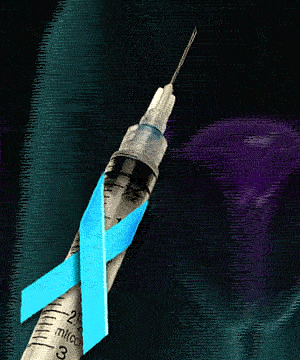- Home
- Editorial
- News
- Practice Guidelines
- Anesthesiology Guidelines
- Cancer Guidelines
- Cardiac Sciences Guidelines
- Critical Care Guidelines
- Dentistry Guidelines
- Dermatology Guidelines
- Diabetes and Endo Guidelines
- Diagnostics Guidelines
- ENT Guidelines
- Featured Practice Guidelines
- Gastroenterology Guidelines
- Geriatrics Guidelines
- Medicine Guidelines
- Nephrology Guidelines
- Neurosciences Guidelines
- Obs and Gynae Guidelines
- Ophthalmology Guidelines
- Orthopaedics Guidelines
- Paediatrics Guidelines
- Psychiatry Guidelines
- Pulmonology Guidelines
- Radiology Guidelines
- Surgery Guidelines
- Urology Guidelines
Cutting-edge developments made in field of Anticancer vaccines

Lugano - Switzerland – It was revealed at the ESMO Immuno-Oncology Congress in Geneva, Switzerland that Cutting-edge developments in the field of Anticancer vaccines, they have gained a new lease of life. The personalised approach to individual patients had re-energised the field of anti-cancer vaccines.
Dr Michal Bassani-Sternberg, Group Leader, Immunopeptidomics, Hi-TIDe Laboratory, Department of Oncology, University of Lausanne, Switzerland, and the Ludwig Institute for Cancer Research in Lausanne, said: “The 'Modern anticancer vaccines' session at the ESMO Immuno-Oncology Congress was timely since there is again a flurry of activity around anticancer vaccines. We can now customise vaccines for each patient based on the genomic information in their tumour, and the early results are promising.”
The original anticancer vaccines, launched in the late 1990s, were based on shared tumour antigens and failed to induce a potent immune response. After decades of disappointing results, a number of advances have sparked a renewed interest in the field. These include new technologies and prediction algorithms to personalise vaccines and the introduction of checkpoint inhibitors for combination therapy.
Personalisation has been made possible with high-throughput next generation sequencing. This technology identifies mutations that are unique to a patient’s tumour and are not found elsewhere in the body, meaning that a vaccine mounts a cancer-specific immune response. Algorithms can predict which neoantigens should be targeted for vaccination.
Bassani-Sternberg said: “We have a good way to fish out and propose targets for vaccination. The first trials were published last year and showed that the selected targets were immunogenic, meaning that vaccination induced immune responses or amplified existing immune responses against these neoantigens. In addition, the vaccines worked well with checkpoint inhibitors. We now need to see if vaccination against neoantigens leads to tumour regression in a larger cohort of patients.”
Bassani-Sternberg said the combination of modern anticancer vaccines and checkpoint inhibitors appears to generate the most effective immune response. “Vaccines can induce new responses in patients with ‘cold tumours’ which lack immune cells, thus making the environment receptive to checkpoint inhibitors,” she said.
Numerous questions remain unanswered, such as when to vaccinate patients. Should this be immediately after surgery, when there are few tumour cells left, or beforehand? Should vaccines be administered against primary tumours and metastases? Will it be necessary to give new vaccines every few months as tumours evolve naturally and in response to treatment? How and when should vaccines be combined with other therapies? And while the choice of neoantigen seems crucial, decisions are also needed on the formulation (protein-based, RNA, cell-based), delivery vehicle (liposomes, virosomes, emulsions), route of administration (intranodal, intradermal), and adjuvants.
But despite these questions, vaccination appears feasible. The technology to develop vaccines is available and getting better, the vaccines are safe and immunogenic, and there is openness from the regulators to testing vaccines in clinical trials. Bassani-Sternberg said: “We are counting on new technologies that have now matured. Next-generation sequencing has made identification of vaccine targets more efficient, reliable, and cheaper. The algorithms to interpret this data are benchmarked and validated for predicting which targets are most likely to be immunogenic. Sequencing technologies are only going to get better and prediction tools will become even more accurate.”
“There is great hope for vaccines,” she continued. “And they have the potential to benefit most patients because almost all tumours have targets that could be vaccinated.”

Disclaimer: This site is primarily intended for healthcare professionals. Any content/information on this website does not replace the advice of medical and/or health professionals and should not be construed as medical/diagnostic advice/endorsement or prescription. Use of this site is subject to our terms of use, privacy policy, advertisement policy. © 2020 Minerva Medical Treatment Pvt Ltd